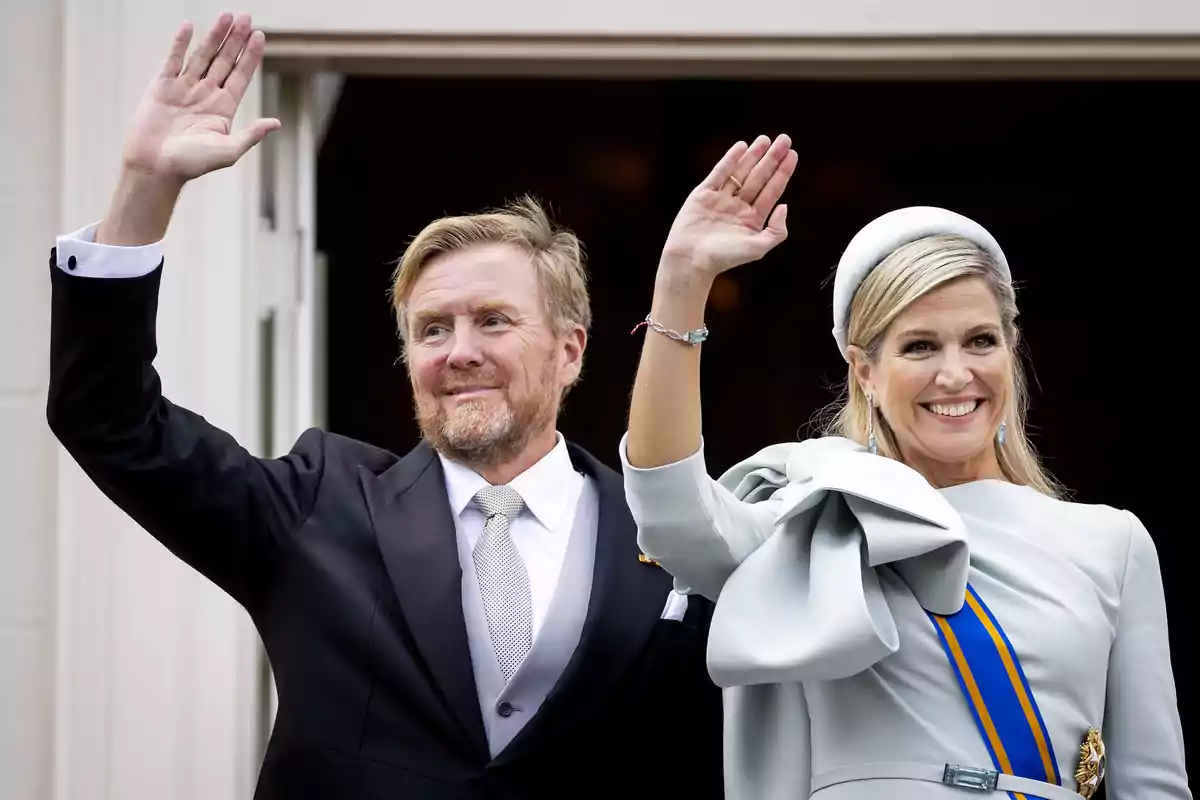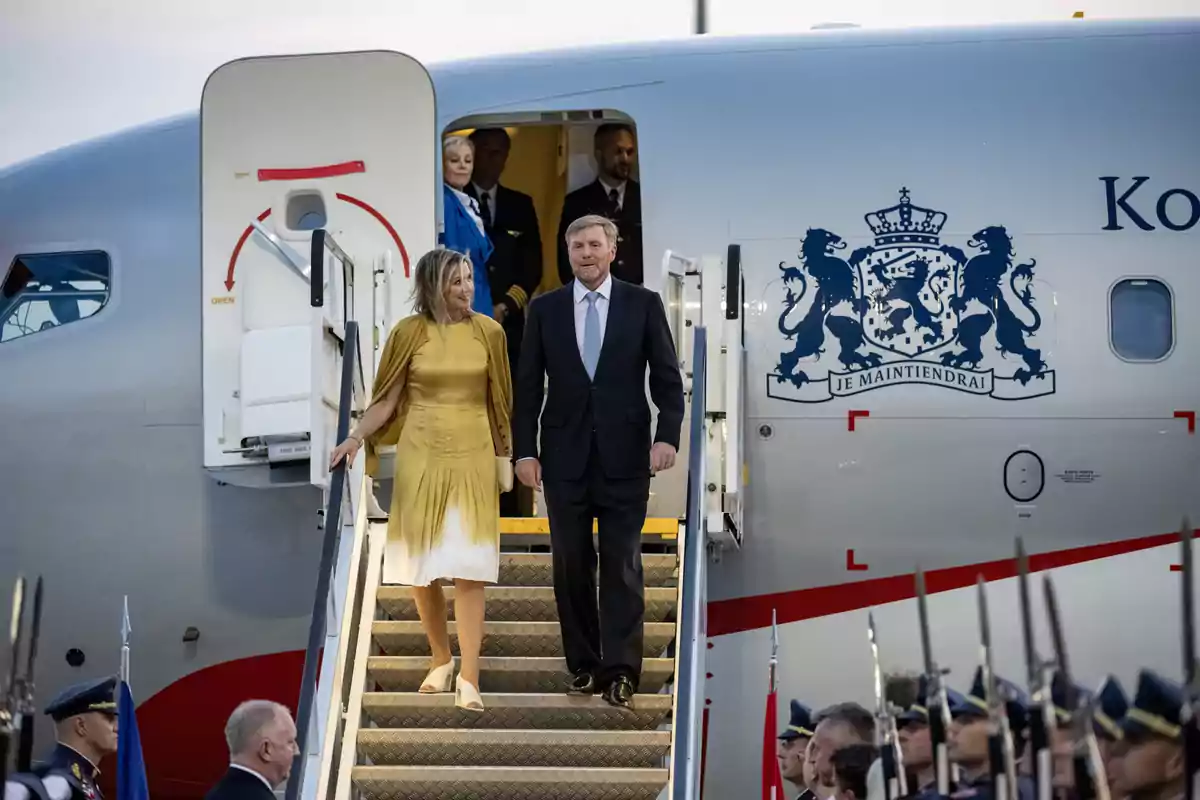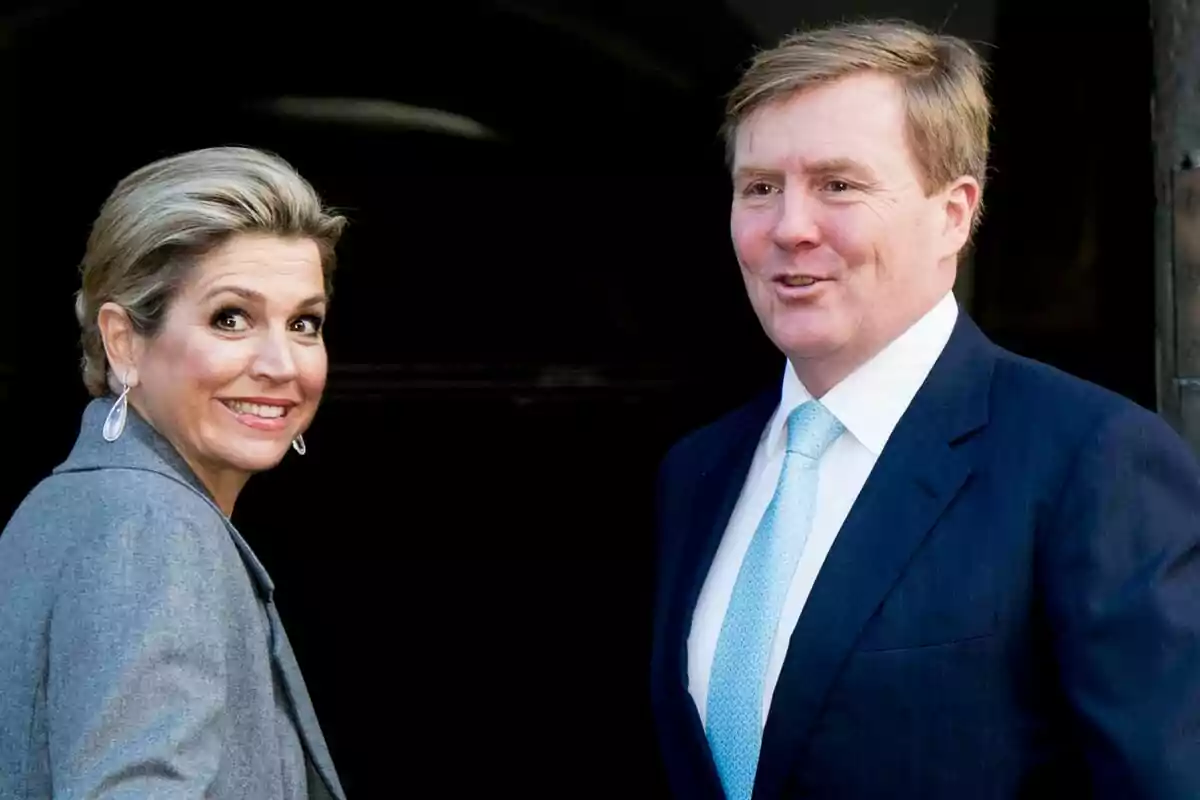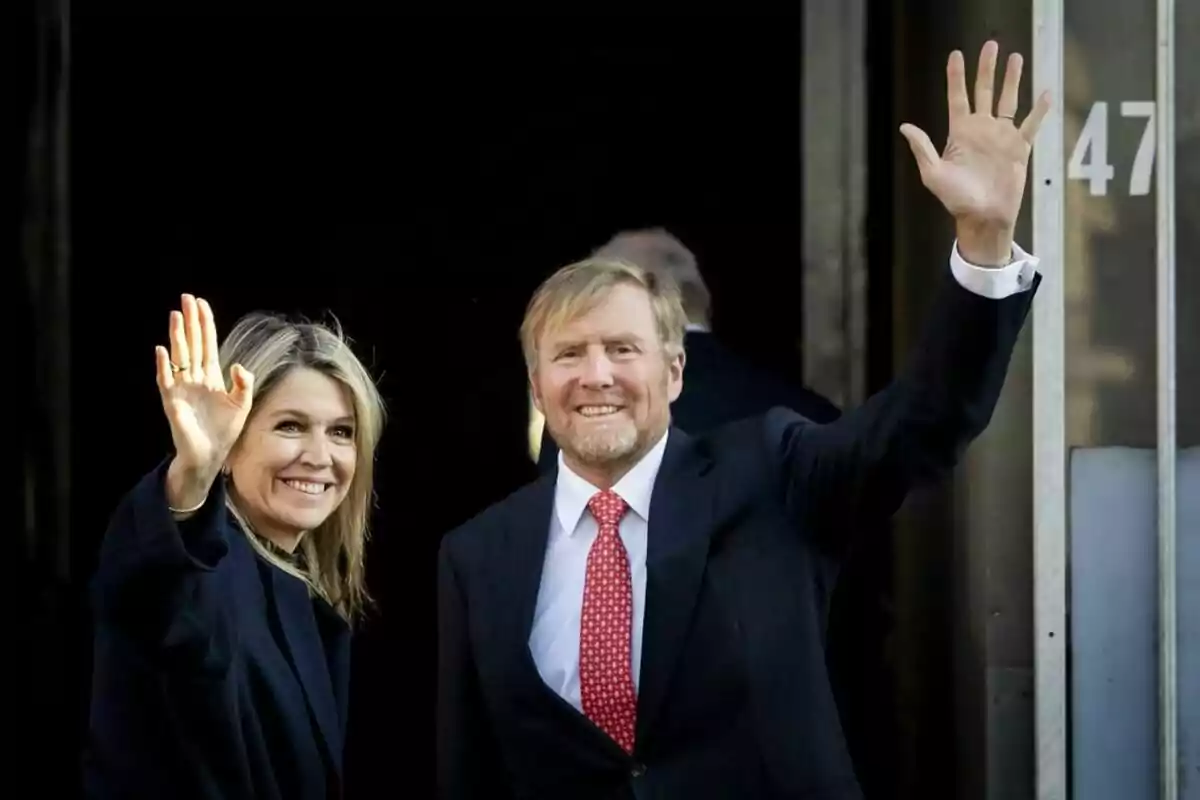For years, they have tried to keep a close image, but this time the situation seems to have crossed a line. Clear warning signs are coming from the Netherlands about King Willem-Alexander and Queen Máxima. Although everything points to a simple summer vacation, what lies behind is generating social discontent that has sparked a national debate.
Unlike other European sovereigns, the Dutch monarchs have chosen to spend their vacation outside their country. Criticism has not taken long to appear, and many believe they have made a misstep that could cost them their already questioned popularity. Why has their decision caused so much discomfort? What is so special about this trip that has triggered such a wave of reactions?

The image of King Willem-Alexander and Queen Máxima during their vacation worries the Dutch
The discomfort felt in the Netherlands regarding their monarchs is not new. However, this time the controversy has reached especially high levels due to a symbolic issue: the destination chosen by Willem-Alexander and Máxima to enjoy their summer break. Instead of opting for national locations, as most of their European counterparts do, they have headed to their private villa in Greece.
Everything began more than a decade ago, when the couple decided to sell their summer residence in Mozambique. Later, they acquired a luxurious property in Kranidi, an exclusive area on the Peloponnese peninsula.
This villa, valued at five million euros (€5,000,000) and with privileged views of the Aegean Sea, has been their refuge on multiple occasions. It is a retreat with a pool and a private port, more than 1,200 mi. (2,000 km) away. Now, in the middle of the high season, their choice has been labeled as elitist, disconnected from the country's reality, and, above all, untimely.

The newspaper Story has published harsh criticism toward the monarchs. Royal expert Justine Marcella puts it bluntly: "They could learn a couple of things from their royal colleagues. I'd love for them to spend their vacation in Zeeland, Limburg, or Terschelling, because the Netherlands are beautiful! Although I don't think they'll ever do it."
Marcella's comments have not been the only ones, as expert Jeroen Snel has offered a conciliatory yet also critical view. "I'm looking forward to seeing images of King Willem-Alexander and Queen Máxima on bicycles. It's not that they have to stay here for weeks; a long weekend or a few weekdays would also be fine," he says.

The Dutch media also recall an episode that still weighs on the collective memory. In October 2020, at the height of the COVID-19 pandemic, Willem-Alexander and Máxima traveled with their daughters to this same villa in Greece, ignoring recommendations not to travel abroad. After the wave of outrage their getaway caused, they were forced to return early and apologize, admitting their "recklessness."
The contrast with other royal houses reopens the debate about the example set by Willem-Alexander and Máxima
These statements illustrate the general feeling: the Dutch do not demand drastic resignations, but gestures that bring them closer to their people. Many believe that King Felipe VI and Queen Letizia of Spain have achieved this with their traditional stay in Mallorca.
The discontent doesn't arise only from the luxury represented by their villa in Greece, but from the contrast with what other monarchs do. The Danish royal family, meanwhile, despite their own controversies for extending their vacation, spend long periods in their national palaces such as Marselisborg or Graasten.
The Norwegian monarchs do the same at the Oscarshall summer palace. Prince Albert of Monaco hardly leaves his Roc Agel residence, while Charles III and Camilla take refuge in Balmoral.

These examples, cited by Dutch media, reinforce the idea that spending vacation at home is not only a gesture of closeness, but also a way to set an example. In that sense, Willem-Alexander and Máxima seem to have once again distanced themselves from the majority sentiment. Now, they have created a gap that seems increasingly difficult to close.
There is no doubt that the new controversy surrounding Willem-Alexander and Máxima reflects a persistent tension between what is expected of royalty and what they actually do. The reaction of the Dutch people confirms that seemingly private decisions can have public consequences. Will the monarchs learn from this situation to reconnect with their country and avoid new mistakes?

